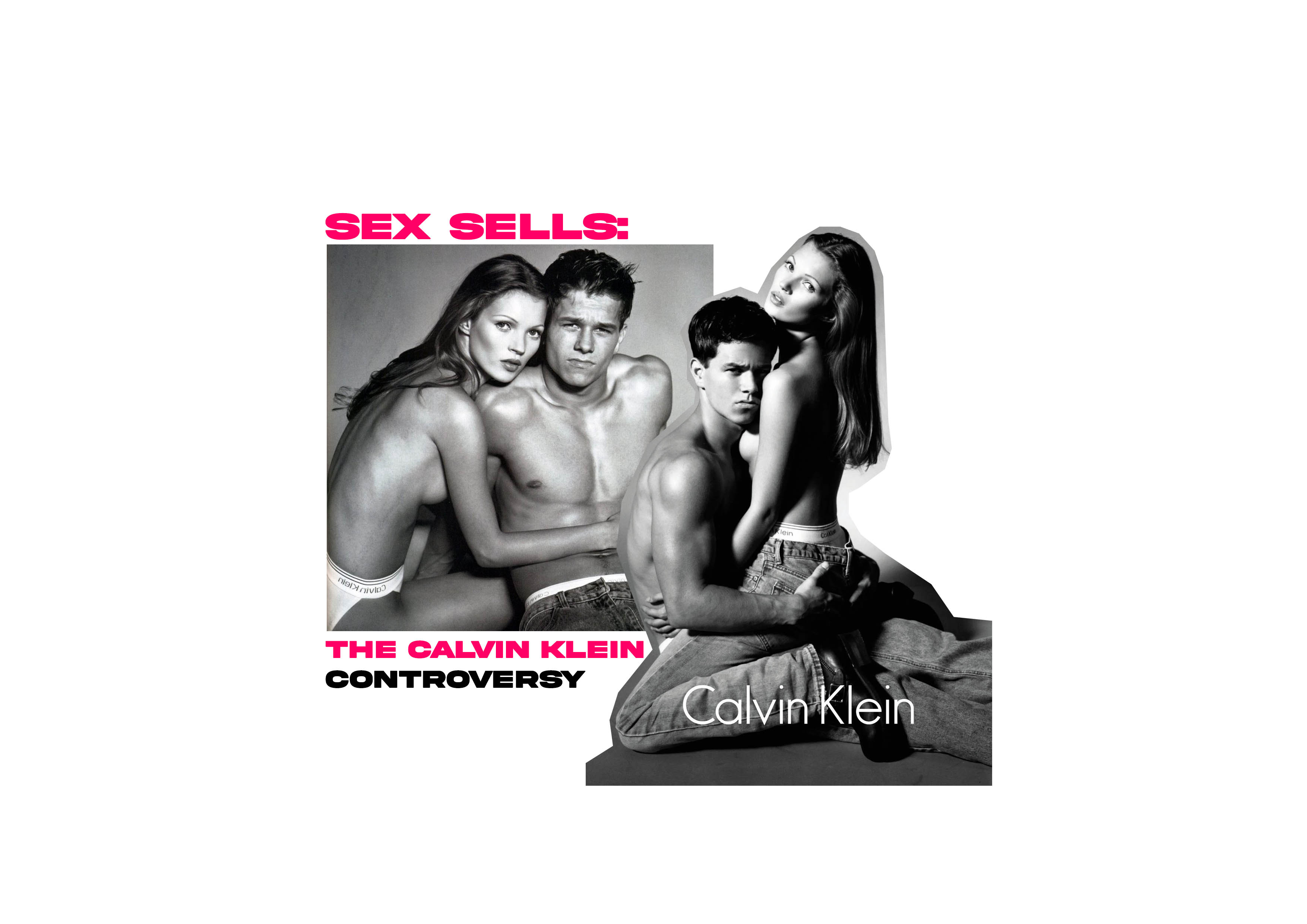
ABOVE: THE CALVIN KLEIN 1992 KATE MOSS AND MARK WAHLBERG CAMPAIGN.
Sex sells. You have probably heard this said before, whether it has been in a judging or empowering tone, you will know it. This is when sexual behaviour is used to help market a certain product and over the years it has became quite a controversial topic.
This technique dates back as far as the late 19th century, where a naked woman was depicted to advertise tobacco. Then slowly it went into other impulsive products such as cosmetics, and perfume. Even food have used sex ‘skits’ to advertise, for instance, Skittles have a collection of banned adverts where they provocatively use their product in a silly yet NSFW manner. Thus, turning the motto ‘taste the rainbow’ into something a little bit more than we bargained for.
Even the M&M advert that’s currently shown on our TV’s use this tongue in cheek humour. Showing an M&M in bed with a woman, until her husband walks in and exclaims “You were going to eat him without me, weren’t you?” Funny yet still quite strange considering it is a cartoon of a chocolate. But this is ‘sex sells’ done subtly; the strangeness is grabbing your attention. A main culprit for using sex in a more serious way is the fashion industry.
It is bizarre to think that to sell clothes, models would not wear anything. But sex is a popular interest, and the industry took advantage of this. Most of us are all here as a product of it and whether we like it or not sex grabs our attention quickly, which could cause a positive or negative response for the companies.
Calvin Klein, the famous American fashion house, has sexiness engrained in their brand image. However, this has caused them controversy. In the 1980s Calvin Klein Jeans had an advert banned on American networks, it featured a 15-year-old Brooke Shields, whistling as the camera panned up her body. She finally looked up into the camera and said “You want to know what comes between me and my Calvin’s? Nothing.”
In 1992 another unforgettable shoot was campaigned, where an almost naked 17-year-old Kate Moss held onto a shirtless Mark Wahlberg. Moss has later gone on to say that the shoot gave her a nervous breakdown due to disliking posing nude. Calvin Klein put these star children in vulnerable situations, received backlash, yet the adverts still managed to put the brand on the map.
Does this mean sex does sell? It’s extremely complicated, whether it’s right or wrong is still an argument, but does the well-known saying “any publicity is good publicity,” apply this?
In 2020, it’s arguable that ‘sex sells’ is still done but done tasteful. Calvin Klein would never be able to put children in that position without at least one person in the team seeing it as wrong. A ‘woke’ agenda is wrapping itself around the internet meaning that people are more socially correct than ever. Cancel culture is common on platforms such as Twitter, meaning one step out of line and celebrities are branded as ‘over’, arguably this would happen to brands too. But then could this be performative ‘wokeness’ and will a multi-billion-dollar company really listen to strangers on the internet with 10 followers?
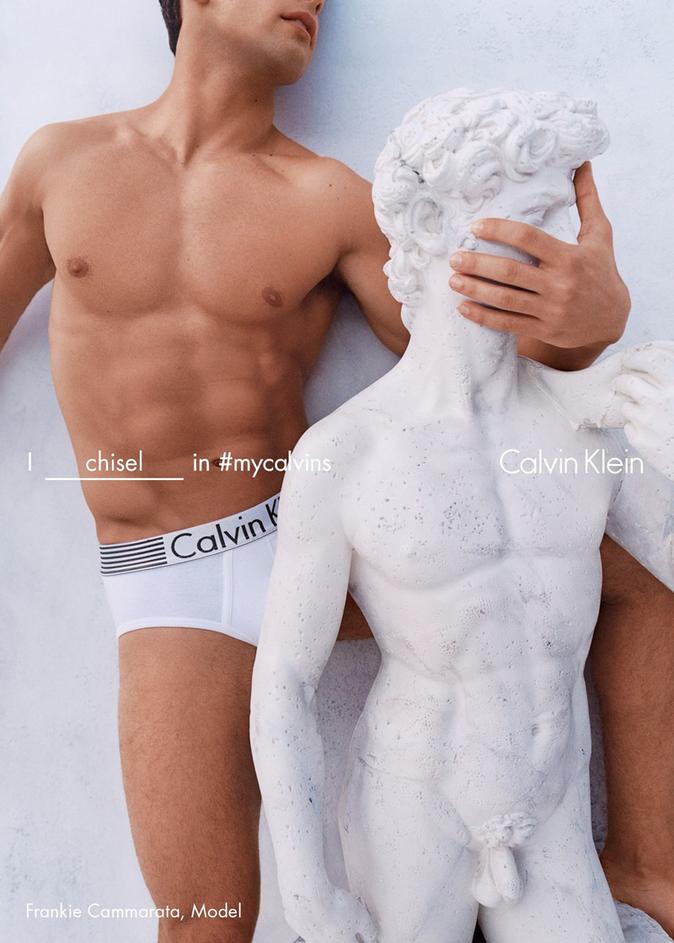
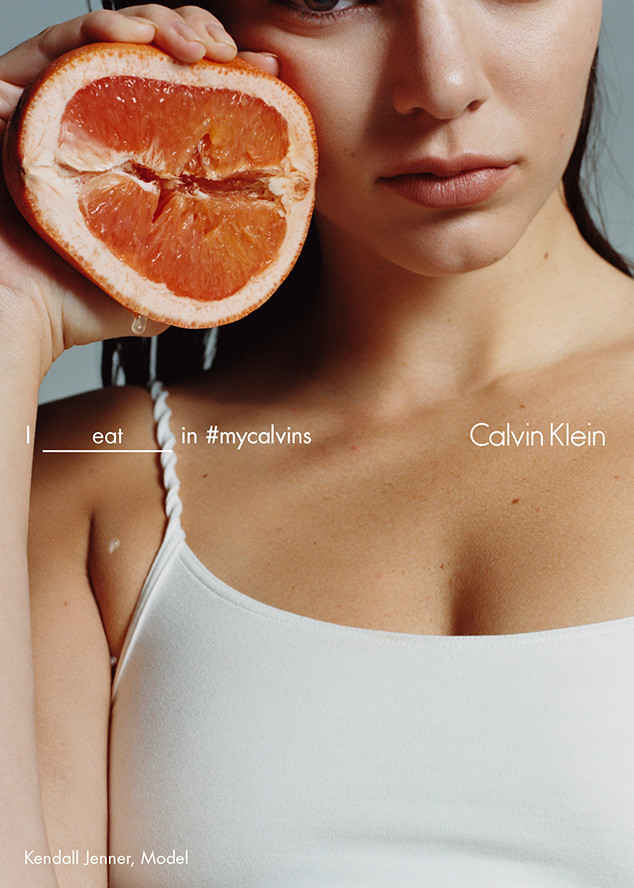
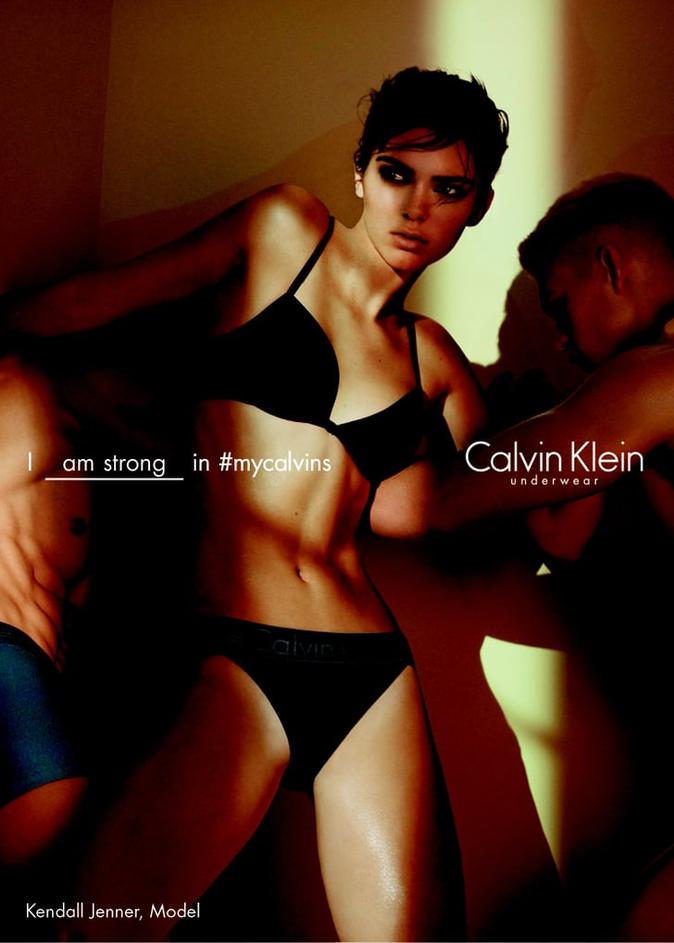
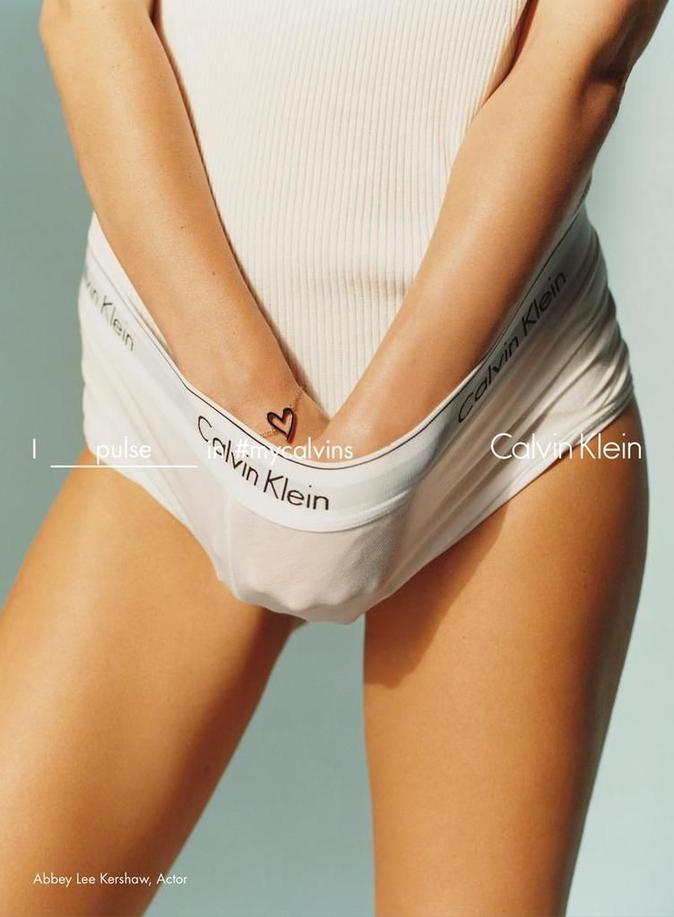
ABOVE: THE CONTROVERSIAL 2016 SPRING CAMPAIGN.
Possibly they would get away with it, just four years ago, they had more controversy when many argued they were reducing women to sexual objects again. Danish actress Klara Kristin stood over the camera, showing straight up her skirt with the tagline “I flash in #myCalvins,” but then had Fetty Wap pose just with the tagline “I make money in #myCalvins.” Too many saw this contrast be too dire to not think it was intentional, showing the man as a money maker and the women as a throw away. Yet the company didn’t take a hit and to this day people still shop from them.
But then is ‘sex sells’ just as arguably empowering? In an age of women taking control of their own bodies is it good to see women being sexual in adverts without men surrounding her?
Seeing women’s bodies being celebrated, whether this be with an innuendo grapefruit or with her hands down her briefs, in a sense it is empowering. In a society where most men probably don’t even think women think sexual, unless it involves them or another man, is it not good to have a brand pushing for solo female sexuality? Letting women own themselves and their sexuality.
I don’t think there will ever be a yes or no answer to whether sex sells works and is morally right. But there’s a confidence to be found within sex and if done right these adverts that use sex appeal can be a modern way to celebrate beauty.